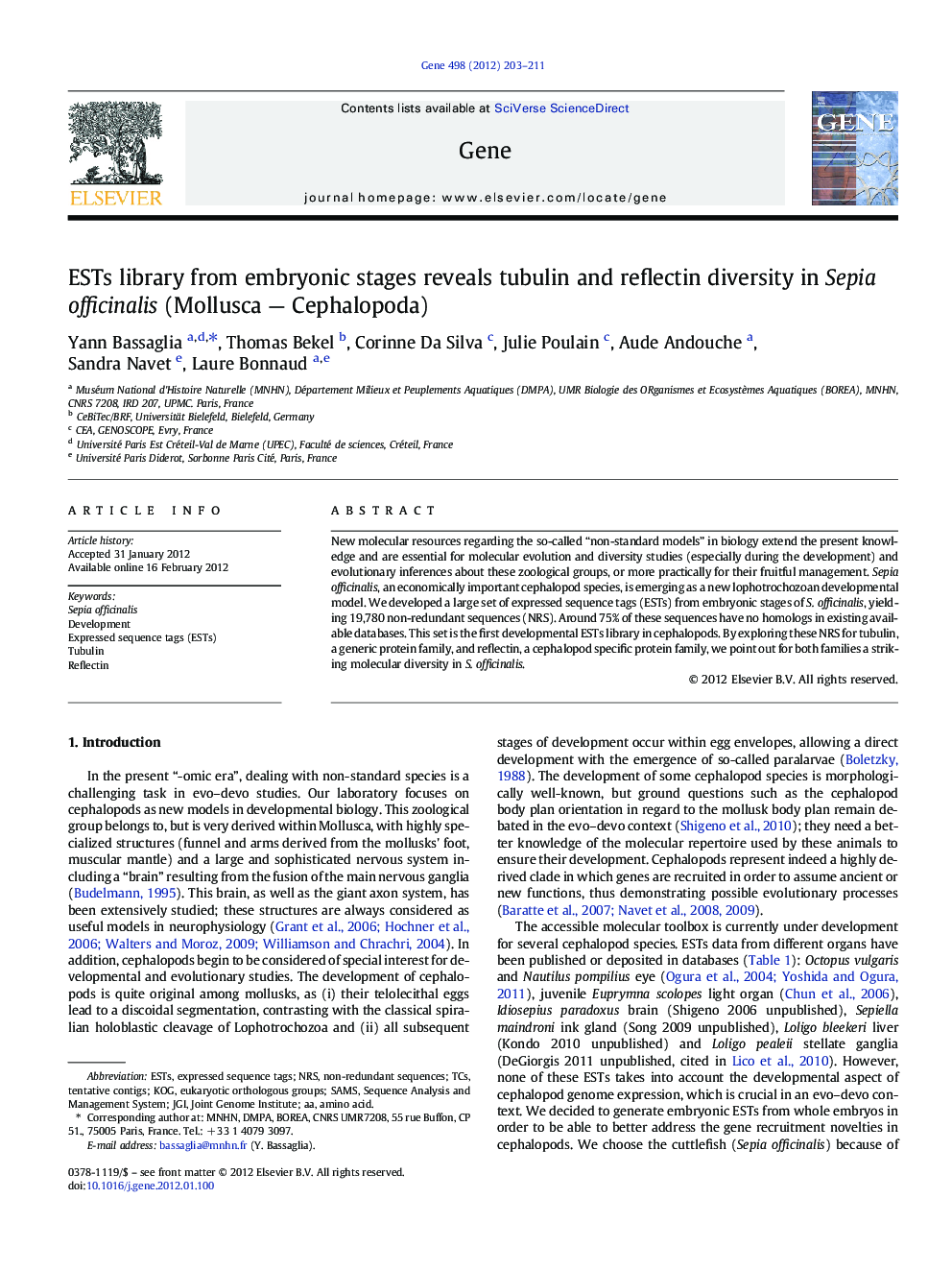| Article ID | Journal | Published Year | Pages | File Type |
|---|---|---|---|---|
| 2818056 | Gene | 2012 | 9 Pages |
New molecular resources regarding the so-called “non-standard models” in biology extend the present knowledge and are essential for molecular evolution and diversity studies (especially during the development) and evolutionary inferences about these zoological groups, or more practically for their fruitful management. Sepia officinalis, an economically important cephalopod species, is emerging as a new lophotrochozoan developmental model. We developed a large set of expressed sequence tags (ESTs) from embryonic stages of S. officinalis, yielding 19,780 non-redundant sequences (NRS). Around 75% of these sequences have no homologs in existing available databases. This set is the first developmental ESTs library in cephalopods. By exploring these NRS for tubulin, a generic protein family, and reflectin, a cephalopod specific protein family, we point out for both families a striking molecular diversity in S. officinalis.
► The first ESTs library from developmental stages of a cephalopod species is described. ► 75% of the 19,780 unigenes of Sepia officinalis have no homology in databases. ► The tubulin family is highly diverse and diverged into the cephalopod clade. ► The reflectin repertoire covers all reflectin forms known in other cephalopod species.
